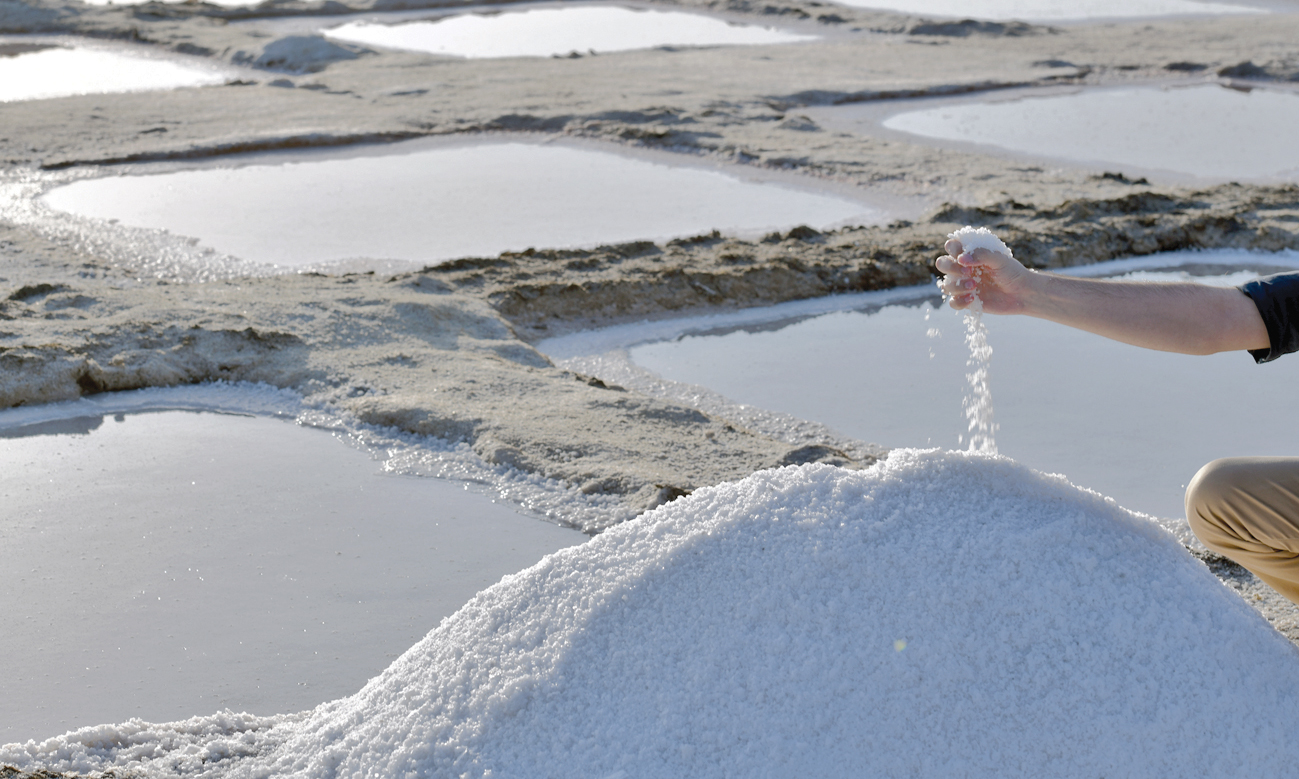

There is something serene about the Khor al Milh of Dagmar in the Wilayat of Qurayat. The ancient practice of extracting salt continues today with rows of square pits at the lagoon replenished with the seawater.
The salt crystals sparkle through the water while heaps of salt adjacent to the ponds are waiting to be packed in sacks to be taken to traditional markets.
It is evaporation that decides the making of salt. In summer the evaporation rate is much higher, and in winter it takes two weeks to complete the process.
Jaffer al Balushi, from Qurayat, explained: “We are continuing the traditional system till today. No machinery is used and the only difference is in the packing. Bags made of date palm fronds were used to pack in the past and donkeys were used for transportation to all the markets in Oman. Now we use synthetic bags to pack and automobiles to transport. Times have now changed and the salt producers have also moved onto marketing their products online.”
The local salt goes to the fish market in Muscat, and is available also in Seeb, Nizwa and Sinaw, besides all traditional souqs. In the interior, it is also used by farmers as they mix it with the fodder for animals. The main market is fish souq because it is used to make salted fish (Maleh). This also meant that the fish could be preserved for the rainy season by using salt for preservation.

In the past, people used impure salt for producing energy to charge batteries, while the pure salt for preparing food.
Most importantly, sea salt was used for medicinal purposes. Ahmed al Abri practises traditional Omani medicine and this is what he has to say, “Sea salt refers to unrefined salt and it is gained by the evaporation of seawater and it differs from the table salt because of the mineral content. Sea salt has benefits in blood circulation because it helps regulate heart rhythm; it helps in reducing heart diseases and heart attacks and can help in blood pressure if consumed in moderate quantities.”
He added, “The sea salt also helps in cleansing the sinus cavities as it can be used as antibiotic, heating water with a little bit of sea salt. It can relieve asthma attacks, help in cleansing the lungs of mucus and phlegm. Also, it helps in extracting the acidity of the body’s cells and excretes it with urine. Sea salt helps in maintaining a healthy balance in the body, strengthening the immune system and increasing energy levels in the body, especially for athletes.
“It is also known to improve the transmission of information between nerve cells, which increases the efficiency of the nervous system.”
According to him, sea salt can be used to limit muscle spasms and could strengthen them.
“It regulates the level of sugar in the blood, thus it helps manage diabetics. Sea salt assists in regulating sleep. Consumption of a little salt added to warm water before bed, gives deep sleep. It is known to stimulate the body to absorb food and is useful in treating skin conditions as sea salt bath helps treat some skin diseases such as psoriasis and arthritis,” he pointed out.
Shabib al Kalbani, clinical nutritionist, Ministry of Health, said some people feel that organic salt is better than refined salt but there is a need for more research.
“The minerals present in organic salt are potassium, iron and calcium. This is one of the reasons why it is considered nutritionally superior to table salt because most of its nutrients are removed and could have additives. Most of the table salt has in it added iodine, which is an essential nutrient that helps in maintaining a healthy thyroid.
“Sea salt and table salt have basic nutritional value. The take-home message is that we should not consume too much sea salt just because it is more natural compared to table salt because at the end of the day both are salt and excessive consumption of salt can be detrimental to your health and can lead to high blood pressure. Not to forget the cause of blood pressure is unhealthy diet, weight and lack of physical activity.”
Oman Observer is now on the WhatsApp channel. Click here



